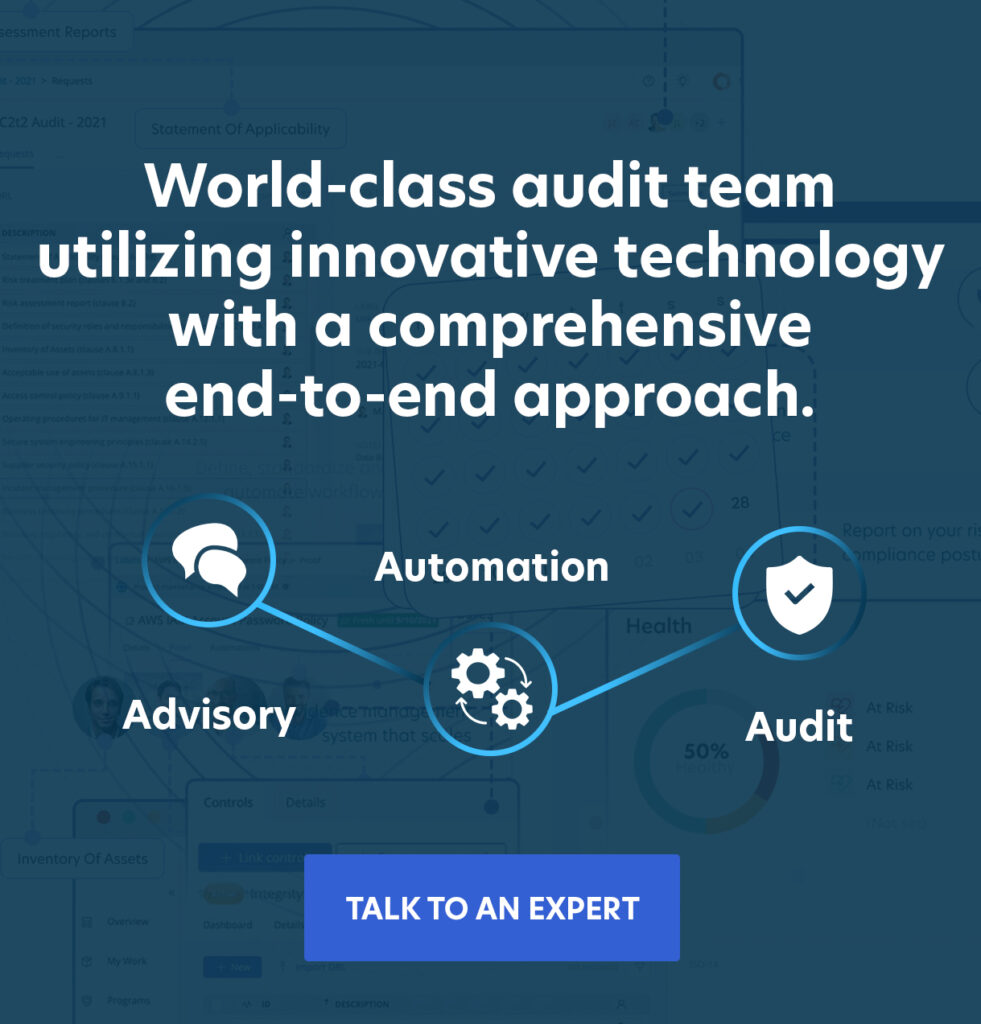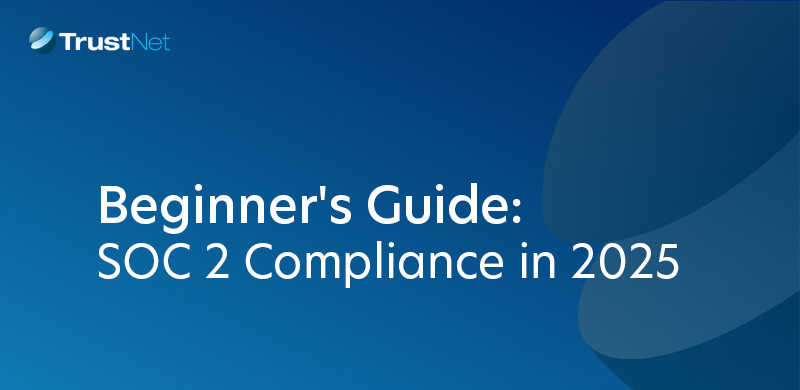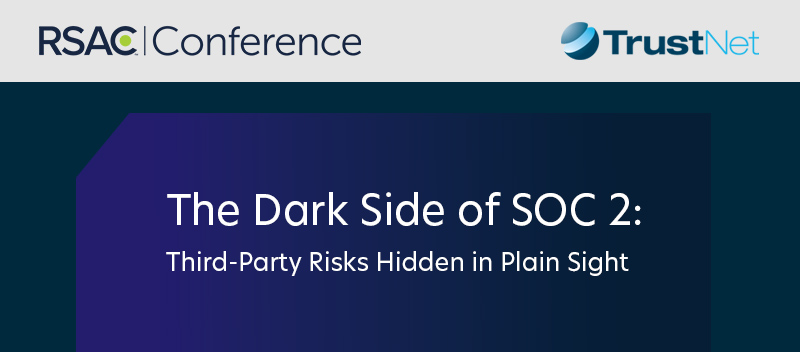10 Reasons Why Businesses Switch Compliance Providers

Compliance sits at the heart of every successful business no matter the industry and size. It’s the safety net, the backbone, the non-negotiable line of defense against risks that could disrupt operations or damage reputations. Yet not all compliance providers offer the same level of support or expertise.
Selecting a provider that aligns with your business needs isn’t just important; it’s essential. Ineffective partnerships may lead to difficulties, inefficiencies, and even compliance gaps. The correct one can provide peace of mind, control risk, and streamline procedures.
So why do businesses change partners? We spoke with business leaders to understand the tipping points that drive them to seek better solutions.
Business Leaders on What NOT To Look For In Compliance Partners
1. Doesn’t Prioritize Cutting-Edge Technology and Custom Solutions
“Engaging a new cybersecurity partner hinges upon clear differentiators and value propositions that align with our unique needs and objectives. As a SaaS business owner, I prioritize partners offering cutting-edge technology and robust data protection. It’s crucial that the partner demonstrates a proactive approach to threat detection and offers customizable solutions to fit our specific architecture. Trust and proven expertise in handling data privacy compliance are non-negotiables.
A partnership needs to deliver tangible improvements in threat mitigation and operational efficiency; cost-effectiveness is a critical factor as well. The ability to adapt quickly in an ever-evolving digital landscape and having a track record of innovation would make me seriously consider switching. Their capacity to integrate seamlessly within our existing systems without disrupting our operations is equally vital.”
Valentin Radu, CEO & Founder, Blogger, Speaker, Podcaster, Omniconvert
2. Fails to Predict and Respond to Industry-Specific Threats
“A cybersecurity partner must do more than just protect us from basic threats. They also need to know about and be able to predict threats unique to our industry, especially since data in fuel logistics is very sensitive. If a partner isn’t actively moving their plans forward, I might look for someone else. Methods that aren’t changing are a red flag. They must do regular, customized risk assessments and give us information that we can use in our business.
It helps to have experience in related fields, but being quick to respond is more important. One experience showed us how important it is to have partners who can step in right away. Partners who don’t feel the need to act quickly risk downtime and lost revenue, which no company can afford.”
Eliot Vancil, CEO, Fuel Logic
3. Lacks Proactive Risk Management and Quick Adaptability
“As a leader in healthcare IT, I’ve often seen the importance of robust cybersecurity in protecting sensitive patient data. One compelling scenario was during the adoption of cloud solutions, where a healthcare provider feared data breaches amidst the transition. By partnering with a firm like ours, which offers advanced encryption and continuous security updates, they not only safeguarded their data but also reduced security incidents by 50%.
When deciding to switch cybersecurity partners, I prioritize those who provide proactive risk management and quick adaptability to evolving threats. For instance, a hospital we consulted employed regular cybersecurity assessments and disaster recovery plans, which resulted in a marked decrease in downtime and improved reliability. These strategies not only protected patient information from breaches but also minimized potential fines associated with non-compliance.
In another case, outsourcing IT needs led a clinic to experience lowered expenses by opting for managed IT services custom to their needs, allowing them to focus budget more efficiently on patient-care improvements. Such concrete benefits drive my decision-making process when evaluating potential partners in cybersecurity.”
David Pumphrey, CEO, Riveraxe LLC
4. Doesn’t Excel in Proactive Threat-Hunting
“When thinking about switching or engaging a new cybersecurity partner, one overlooked factor is their approach to proactive threat-hunting. Many providers offer standard reactive measures like firewalls and antivirus, but a partner who excels in proactive threat identification is a game changer.
Proactive threat-hunting involves actively seeking out vulnerabilities and potential threats before they become a problem. It’s not just about waiting for alerts, but anticipating attacks based on patterns and behaviors. This not only boosts security, but also ensures your system is robust and ready to handle unforeseen challenges.
A remarkable example was when a healthcare client’s systems were being intermittently compromised, and there were no clear indicators from their existing security setup. A new cybersecurity partner was brought in, one that specialized in proactive threat-hunting. They utilized tools to analyze user behavior and network traffic patterns, uncovering a sophisticated threat actor that had gone unnoticed.
This approach not only resolved the immediate issues, but also empowered the client with insights to prevent future incidents. Engaging a cybersecurity partner who prioritizes this approach can make the critical difference between a secure system and one that is constantly playing catch-up.”
Casey Meraz, CEO, Juris Digital
5. Lack of Real-Time Threat Detection and Transparency
“Switching to a new cybersecurity partner would come into consideration if we saw a gap in responsiveness or adaptability to emerging threats.
In the gaming industry, where the volume and nature of data require constant vigilance, a partner who can’t keep up with advanced threats or who lacks proactive monitoring would be a major risk. A new cybersecurity partner offering real-time threat detection, rapid incident response, and a deep understanding of our industry’s unique security challenges would immediately stand out.
We also look for transparency in reporting and ongoing communication. Knowing that our cybersecurity partner not only reacts but anticipates potential risks is invaluable, as is a commitment to evolving with the latest security technologies.
Ultimately, a partner who demonstrates both technical expertise and a proactive approach to cybersecurity makes all the difference. ”
Marin Cristian-Ovidiu, CEO, Online Games
6. Neglects Advanced Threat-Detection and Regulatory Compliance
“Key Factors for Switching Cybersecurity Partners:
Advanced Threat-Detection Capabilities: Since cyber threats are always changing, companies can be left open to attack if their security steps are out-of-date or not proactive. If a partner doesn’t react to new threats or doesn’t use AI to find and stop them, it might be time to look for a new one.
Proven Regulatory-Compliance Support: A cybersecurity partner needs to know a lot about compliance standards that are specific to your business, like GDPR, HIPAA, or SOX. When a partner doesn’t have enough compliance knowledge or doesn’t make sure the right tools for reporting and reviewing are in place, switching is often the best option.
Responsive Incident Response and Support: In safety, it’s important to have quick, easy access to help. Your business could be at risk if a partner has slow reaction times or doesn’t have a dedicated incident-response team. A lot of C-suite leaders put partners with 24/7 help and quick escalation protocols at the top of their list of priorities.”
Arvind Rongala, CEO, Edstellar
7. Fails to Adapt to Evolving Needs and Provide Innovation
“As the CEO of a high-tech company, there are a few key factors that would push me to consider changing our cybersecurity partner. Firstly, if our current provider were unable to adapt to our evolving needs and the rapidly changing threat landscape, it might be time to look elsewhere. In 2017, during our IPO, we recognized the need for a partner who could manage the complex cybersecurity risks associated with public trading—a turning point in our cybersecurity strategy.
Secondly, the quality of customer service is critical. A partner that isn’t readily available or responsive during critical incidents would be a deal-breaker. Remembering an incident around 2010, we needed urgent support due to a potential data breach, and our partner’s delayed response risked our data integrity. Lastly, continuous innovation and advanced solution-offering would seal the deal. In 2020-2021, while establishing our Innovation Center, we switched to a provider with advanced AI-based threat-detection capabilities, providing us with improved security and peace of mind.”
Tony Chen, CEO, Srlon
8. Doesn’t Tailor Solutions to Specific Business Needs
“Changing cybersecurity partners might not just be about finding better technology or more competitive pricing. It’s often about trust and adaptability. An executive should consider how well a potential partner understands the unique, evolving challenges of their specific industry. Cyber threats are never one-size-fits-all, and a partner needs to tailor solutions to fit specific business needs and regulatory requirements. The ability of a partner to offer customized strategies rather than off-the-shelf solutions demonstrates a deeper commitment to your organization’s safety and success.
An approach is incorporating a risk-based cybersecurity framework. Instead of focusing solely on compliance or checklist-based security, this method aligns cybersecurity efforts with the actual risks that your business faces. It allows decision-makers to prioritize resources and attention on the most critical assets, ensuring optimal protection without wasted effort.
When a cybersecurity partner can demonstrate expertise in implementing such frameworks, it indicates their capability to provide a more resilient and nuanced security posture. This nuanced approach can be a game-changer, making it worth re-evaluating and potentially switching to a partner who can offer these cutting-edge, customized solutions.”
Jean Chen, COO & Co-Founder, Mondressy
9. Lacks Proactive Threat Detection and Transparent Communication
“Speaking from experience managing sensitive client data, three key factors would convince me to switch cybersecurity partners.
First, proactive threat detection — our current provider recently caught a sophisticated phishing attempt before it reached our network, preventing potential data breaches.
Second, transparent communication about security protocols. Our partner provides real-time dashboards showing threat levels and response times. Think of it as having a security guard who not only watches your property but shows you exactly what they’re monitoring.
Third, scalability with business growth. As our client base expands, we need a security partner who can adapt their protection levels without compromising speed or performance. The right provider should grow with you, not hold you back.”
Harmanjit Singh, Founder & CEO, Website Design Brampton
10. Doesn’t Not Understand Industry Nuances or Commit to Innovation
“I look for a cybersecurity firm that aligns with our dynamic environment in digital marketing. Their ability to understand the nuances of our industry and adapt their solutions accordingly is essential. I want a partner who not only offers robust security measures but also seamlessly integrates them into our marketing strategies.
An important aspect for me is their commitment to innovation. If they can showcase cutting-edge technologies or strategies that keep up with the ever-evolving threat landscape, that definitely grabs my attention. More so, I appreciate a partner who provides clear communication and regular updates on our security status. Their willingness to engage in collaborative planning sessions can make a difference, as it ensures we are all on the same page when it comes to safeguarding our data and maintaining compliance.”
Spencer Romenco, Chief Growth Strategist, Growth Spurt
Learn more about our cybersecurity and compliance services. Contact our experts today
How TrustNet Addresses These Barriers
With a proven approach that tackles these barriers head-on, we simplify the process so your business can transition smoothly and confidently.
Comprehensive Cybersecurity Services
When it comes to cybersecurity, TrustNet covers all the bases, offering tools and guidance to protect your business against a wide range of threats:
-
- Penetration Testing: Simulates real-world attacks to identify weak points in your systems before attackers can exploit them.
- Cyber Risk Assessment: Evaluates your security posture to uncover vulnerabilities and provide actionable recommendations.
- Vendor Risk Management: Ensures third-party vendors don’t introduce risks into your system by monitoring their security practices.
- Security Awareness Programs: Educates employees on best practices to help prevent costly mistakes caused by human error.
Each service is designed to meet your specific needs, ensuring your business is ready to tackle today’s cyber challenges.
Compliance Support Across Frameworks
Navigating regulatory compliance can be intimidating, especially if your provider isn’t equipped to handle evolving standards. TrustNet offers expertise across a variety of critical frameworks, such as:
Our tailored solutions ensure your organization stays compliant while avoiding operational inefficiencies or costly penalties.
TrustNet’s Flagship Products
At the core of what we offer are two standout solutions — GhostWatch and iTrust — designed to tackle the most pressing security and compliance challenges businesses face today.
— GhostWatch
GhostWatch is an all-in-one platform offering unparalleled visibility and control over your technology stack. Its key features include:
-
- Security Monitoring: 24/7 monitoring with built-in tools to detect vulnerabilities and threats, ensuring your systems stay secure.
- Advanced Threat Management: Combines proactive threat detection, incident response, and management to tackle risks head-on.
- Vulnerability Management: Provides real-time updates and prioritization of risks to help mitigate vulnerabilities swiftly.
- Simplified Compliance: Supports regulatory compliance standards like SOC, HIPAA, and ISO 27001 with tools that simplify reporting and adherence.
- Cloud and Multi-Cloud Coverage: Supports hybrid infrastructures that provide flexibility and scalability, like AWS, Azure, and Google Cloud.
— iTrust
Trust in vendor relationships is critical. iTrust, our cutting-edge risk intelligence platform, provides the insights needed to safeguard those partnerships.
-
- Vendor Risk Management: Offers precise cybersecurity risk ratings across your vendor portfolio, helping to identify vulnerabilities and prioritize risk mitigation for secure partnerships.
- Benchmarking: Tracks and measures the effectiveness of your security posture, providing actionable insights to optimize resource allocation and support strategic planning.
- 360° Assessments: Provides a thorough analysis of cyber risks from every angle — internal, external, and third-party — ensuring a comprehensive overview to address threats proactively.
- Compliance Monitoring: Ensures continuous alignment with critical standards such as PCI DSS, HIPAA, SOC, ISO 27001, and more, streamlining reporting and preventing compliance-related penalties.
- Breach Monitoring: Tracks data breaches and associated remediation efforts to ensure timely and effective responses, minimizing the impact on your operations.
Bridging the Gap
Switching compliance providers doesn’t have to mean starting from scratch. With TrustNet’s comprehensive solutions and expert support, businesses can shift providers confidently, knowing that vulnerabilities are being addressed, and compliance requirements are being met.
Beyond Cost: Choosing the Right Compliance Partner
While cost often grabs the spotlight when evaluating compliance partners, it’s far from the only factor businesses should consider. True value lies in expertise, adaptability, and solutions tailored to your unique challenges. A partner offering long-term returns and resilience is a far smarter investment than one that simply offers the lowest upfront bid.
Here’s how TrustNet goes beyond cost to deliver deeper value to its clients:
– Deep Compliance Expertise: Regulation landscapes are complex, from GDPR to PCI DSS and CMMC. TrustNet’s experience across a wide range of standards means your business receives precise guidance to work toward compliance.
– Value for Money: Investing in thorough, high-performing solutions pays off in the long run. End-to-end coverage for your technological stack is offered by TrustNet’s flagship solutions, such as GhostWatch, which lower vulnerabilities and incident-related costs. Similarly, iTrust offers useful insights that assist businesses in safeguarding important assets and reducing risk management expenses.
– A Personalized Approach: Compliance and risk management aren’t just about checking boxes. At TrustNet, the focus lies in understanding your industry specifics and designing strategies that are tailored to your needs.
– Proactive Solutions and Adaptability: Challenges in cybersecurity aren’t stagnant. TrustNet ensures you’re not reacting to threats but preventing them before they materialize. With TrustNet, every feature, every service, and every innovation is designed with this long-term vision in mind.
Why TrustNet Is the Partner You Can Count On
Choosing the right partner to help you manage compliance and cybersecurity is more than a business decision. Since 2003, we have focused on developing trust, boosting confidence, and creating solutions that help you succeed in the long run.
Disclaimer: Throughout this article, insights from CISOs, CEOs, and other executives are provided for illustrative purposes. These people may or may not be connected to TrustNet.
can position your organization for success. Contact us today to get started.
Subscribe to the TrustNet Newsletter
actionable cybersecurity strategies, and TrustNet’s cutting-edge solutions.




